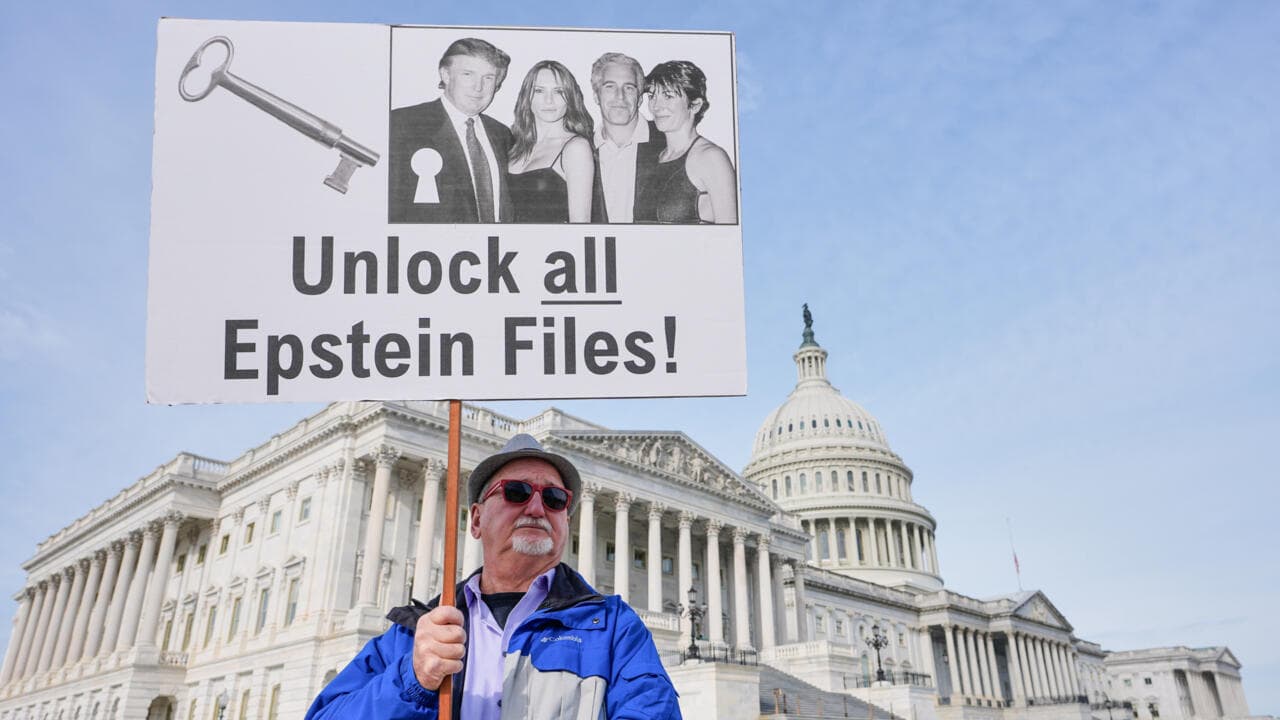US President Donald Trump on Wednesday signed a bill requiring the release of government files related to convicted sex offender Jeffrey Epstein, who died in a Manhattan jail in 2019. The move came as a surprise to many, as Trump had previously resisted calls to make the documents public.
The legislation, known as the Epstein Files Transparency Act, covers a wide range of materials, including emails, internal communications, investigative notes, court filings, and other records amassed over years of federal inquiries. Proponents argue it is intended to provide transparency about Epstein’s criminal network and hold any implicated associates accountable.
Under the new law, federal authorities must publish unclassified records within 30 days.
What are the Epstein files?
The “Epstein files” are government records collected over multiple federal investigations into Epstein and his associates. Epstein, a financier with high-profile political and social connections, was first convicted in 2008 for soliciting a minor. He was arrested again in 2019 on federal sex-trafficking charges and was later found dead in his jail cell in what a coroner ruled a suicide.
These investigations produced a vast archive of emails, internal memos, investigative notes, court filings and other material that could shed light on his activities and connections.
Watch more‘Trump’s Achilles heel’: US president under fire over handling of Epstein files
Experts, meanwhile, note that the law allows for certain sensitive information to be withheld.
“There are carve outs relating to the privacy of victims… if the Justice Department decides not to pursue criminal charges, then even if someone’s been investigated, they would not normally release that information, so as not to damage the reputation of the individual,” said Richard Johnson, senior lecturer in US politics and policy at Queen Mary University of London.
According to Emma Long, associate professor in American history and politics at the University of East Anglia, some documents may be withheld to protect ongoing investigations: “Now, given the profile of this … if the administration does try doing this, I think people there would be watching and waiting to see when those potential investigations were dropped so that they could demand the files, but it might allow the heat of the political moment to pass.”
Recent media reports highlighting emails linked to Epstein have also fuelled speculation about Trump’s proximity to the sex offender, increasing public interest in what the files may reveal.
What the files could contain
It remains however unclear what the released documents will show, and experts warn that public expectations may exceed what ultimately emerges.
Johnson said many documents will likely be redacted: “Many of the files that are released will probably have some level of redaction … the most obvious would be those relating to the identity of victims … and then there may be another set of files that are not released at all because of these carve outs,” Johnson said.
Long suggested redactions may go beyond protecting victims. “Even if they just released everything, they would redact the names of victims and anything that could obviously identify them in a public realm. But I wouldn't put it past the administration or those who are making the decisions about what they release and what they don't to use that as an excuse.”
Both experts also warned that public figures may be treated differently.
“When someone is a public figure and has been in a position of power … the standards of what that person can expect in terms of their levels of privacy … it’s a different evaluative standard versus just some ordinary person member of the public,” Johnson said.
What happens next?
Although the law sets a 30-day deadline for releasing unclassified records, legal and practical hurdles could delay or restrict what is actually made public.
“The executive branch can miss the deadline … there’s very little that Congress could do that could force them to just sort of press a button and release everything because of all of these kinds of privacy concerns and other concerns,” Johnson said.
Long noted that mounting legal challenges regarding the definition of “privacy” could prove difficult.
“You would need somebody who had some kind of inside information to be able to identify the particular individual or the particular set of documents that needed to be challenged,” she said.
While in office, Trump is largely shielded from criminal prosecution.
“The president cannot be charged with a criminal offence while he is in the White House. And that has been a longstanding legal convention in the United States. So as long as he's president, he's protected legally from that,” Johnson said.
He added that even if federal crimes were revealed, Trump could potentially use his pardon powers to shield himself, while state-level cases – such as those in New York – could still be pursued but may face practical limits like statutes of limitation and Trump’s age:
“They would therefore have to try and make use of the federal files that get released,” he said.

